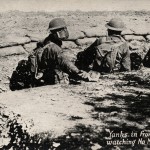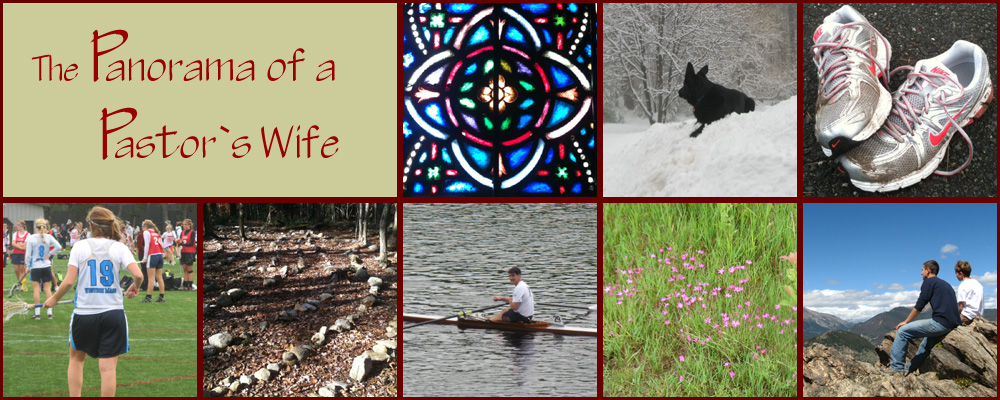Going Back to 1918 and Finding More Than the Last Big Red Sox Win at Home
It was windy out there a couple of days ago, matching my sense of being caught up in the sweep of history during these late October days. I’m in the here and now, absolutely, planning my day tomorrow like everybody else; but recent events have also had a way of casting me back, providing links with other times and even other continents. It feels a bit like being on a trapeze, arriving at those little platforms with relief, only to push off again. What I’m doing requires a whole lot less skill, I’ll admit.
At the end of that windy day, when he gave his opening address at the 211th Annual Convention for the Episcopal Church in New Hampshire, my husband offered up images of the past as well as glimpses of the future stretching ahead. It was All Saint’s Day, first of all, so the dead were already swirling all around us. Needless to say, though, there have been some pretty significant changes in our culture since 1802 — since 2002 even — and churches everywhere need to be supple enough to find new ways of thriving, in some cases radically re-inventing themselves.
A few evenings ago, in Fenway Park, a whole lot of memories were unleashed. The World Series victory at home brought jubilation and, everyone agrees, a kind of release of tension from the Marathon bombing half a year ago.
 There was, of course, also the memory of the just plain dreadful 2012 Sox season, when some people actually turned away and tickets were actually available. This triumph also brought back the 2004 and 2008 wins, not quite complete because they were clinched elsewhere. The wonderful sign “Party Like It’s 1918” summoned up Prince’s 1982 hit about the year 1999, both of which are in the rear view mirror. When we try to resurrect 1918, from the history books or maybe from our parents or grandparents, we imagine the enormity of World War I, the staggering number of soldiers who died in Europe, and then, oh yes, the shortened baseball playoffs featuring the storied Babe Ruth on the mound.
There was, of course, also the memory of the just plain dreadful 2012 Sox season, when some people actually turned away and tickets were actually available. This triumph also brought back the 2004 and 2008 wins, not quite complete because they were clinched elsewhere. The wonderful sign “Party Like It’s 1918” summoned up Prince’s 1982 hit about the year 1999, both of which are in the rear view mirror. When we try to resurrect 1918, from the history books or maybe from our parents or grandparents, we imagine the enormity of World War I, the staggering number of soldiers who died in Europe, and then, oh yes, the shortened baseball playoffs featuring the storied Babe Ruth on the mound.
And here’s where my mind, instead of swinging back off the platform for that particular year, finds reason to linger there for a while.
My own mother was born in 1918, in Canada, where there has always been more hockey than baseball. She died eight years ago, at the age of 87, but she has a way of sticking with me. This picture, taken a bunch of autumns back, shows her open and optimistic spirit. Her greatest pleasures included being active outside, feeling strongly connected to her community, reading widely, and listening intently to people’s stories when they came to visit. Except for a life-changing trip to Asia to visit my brother in the Peace Corps when I was in high school, she stayed pretty close to home most of the time, but she led an absolutely full life and knew great contentment.
Nelson Mandela was also born in 1918, on the other side of the world. He, of course, is still living at the age of 95, although out of the public eye. The course of his astounding life is much with me these days because my son, who is spending a semester in South Africa, got me started reading the engrossing autobiography, Long Walk to Freedom. It traces his whole involvement in the struggle against apartheid, step by step, with wonderful moments of pausing to reflect on key turning points, difficult decisions, times he felt terribly torn. And there were plenty of these. What he did, of course, was all-consuming work. At the very end of the book, he pays tribute to the remarkable colleagues with whom he worked, including Oliver Tambo, calling them “men of such extraordinary courage, wisdom and generosity that their like may never be known again. Perhaps it requires such depth of oppression to create such heights of character.” (p. 542)
spending a semester in South Africa, got me started reading the engrossing autobiography, Long Walk to Freedom. It traces his whole involvement in the struggle against apartheid, step by step, with wonderful moments of pausing to reflect on key turning points, difficult decisions, times he felt terribly torn. And there were plenty of these. What he did, of course, was all-consuming work. At the very end of the book, he pays tribute to the remarkable colleagues with whom he worked, including Oliver Tambo, calling them “men of such extraordinary courage, wisdom and generosity that their like may never be known again. Perhaps it requires such depth of oppression to create such heights of character.” (p. 542)
And so it is that, beneath one of those “Party Like It’s 1918” signs, I imagine my mother and Nelson Mandela – let’s say in midlife — out there on the grass, dancing gracefully amidst all of those bearded guys jumping on one another. Ridiculous, I know, but stranger things have happened.




All the celebratory referencing didn’t make me think of it, but your post did: 1918 was also the year of the terrible pandemic that killed so many in New England and all over the world. I’ve never thought about the conjunction between that and the Red Sox win. Something to pursue?
Also, I love your description of your mother.